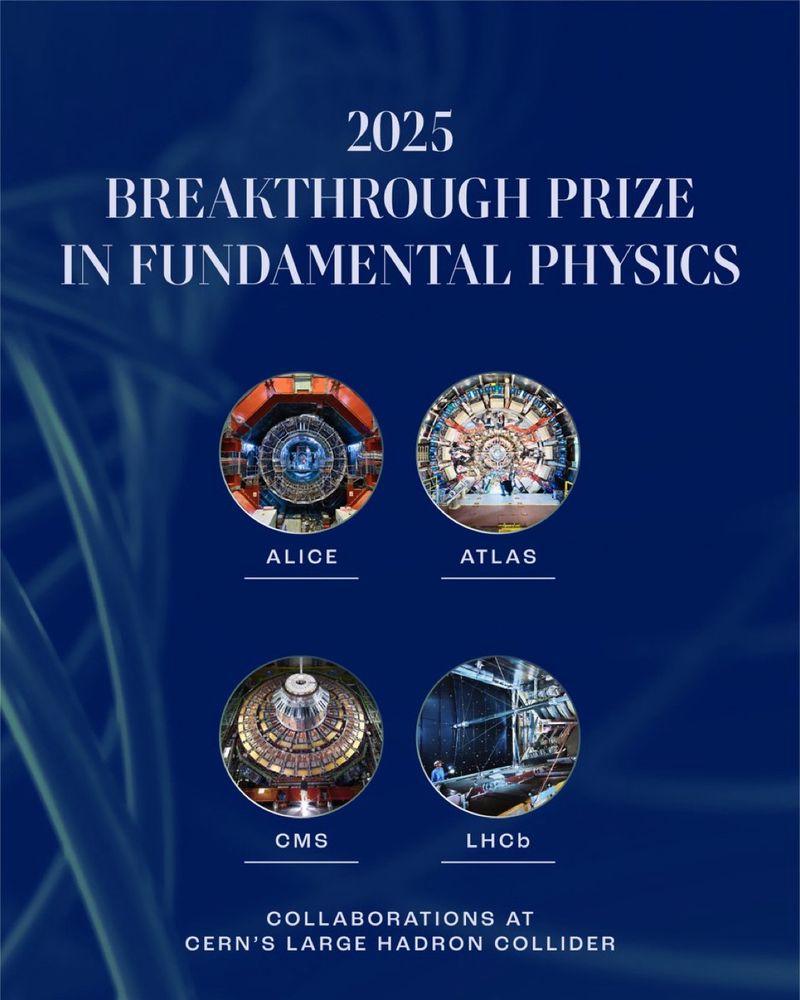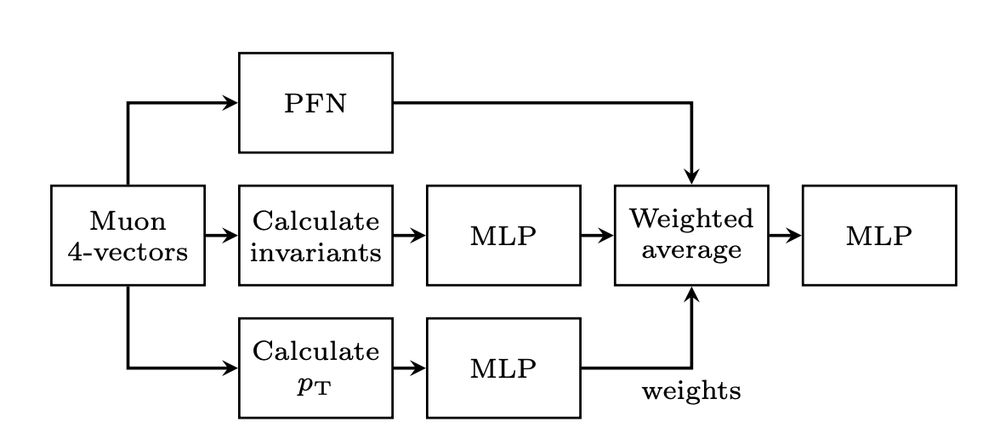Fundamental Physics ∩ AI
AI Policy
AI for hypothesis generation, simulation, inference in particle & astro
High-dimensional statistics, neural inference, uncertainty quantification

Physics at 𝐆𝐞𝐨𝐫𝐠𝐢𝐚 𝐓𝐞𝐜𝐡 is accepting applications.
𝐌𝐲 𝐠𝐫𝐨𝐮𝐩 𝐨𝐧 𝐀𝐈 ∩ 𝐩𝐡𝐲𝐬𝐢𝐜𝐬 𝐢𝐬 𝐠𝐫𝐨𝐰𝐢𝐧𝐠! So if you know students interested in 𝐟𝐮𝐧𝐝𝐚𝐦𝐞𝐧𝐭𝐚𝐥 𝐩𝐡𝐲𝐬𝐢𝐜𝐬 𝐨𝐫 𝐚𝐬𝐭𝐫𝐨, please share this.
🗓️ Deadline: 𝐃𝐞𝐜𝐞𝐦𝐛𝐞𝐫 𝟏𝟓
🔗 physics.gatech.edu/academics/gr...
Physics at 𝐆𝐞𝐨𝐫𝐠𝐢𝐚 𝐓𝐞𝐜𝐡 is accepting applications.
𝐌𝐲 𝐠𝐫𝐨𝐮𝐩 𝐨𝐧 𝐀𝐈 ∩ 𝐩𝐡𝐲𝐬𝐢𝐜𝐬 𝐢𝐬 𝐠𝐫𝐨𝐰𝐢𝐧𝐠! So if you know students interested in 𝐟𝐮𝐧𝐝𝐚𝐦𝐞𝐧𝐭𝐚𝐥 𝐩𝐡𝐲𝐬𝐢𝐜𝐬 𝐨𝐫 𝐚𝐬𝐭𝐫𝐨, please share this.
🗓️ Deadline: 𝐃𝐞𝐜𝐞𝐦𝐛𝐞𝐫 𝟏𝟓
🔗 physics.gatech.edu/academics/gr...
🏙️Join my new group at 𝐆𝐞𝐨𝐫𝐠𝐢𝐚 𝐓𝐞𝐜𝐡, based in 𝐰𝐨𝐧𝐝𝐞𝐫𝐟𝐮𝐥 𝐌𝐢𝐝𝐭𝐨𝐰𝐧 𝐀𝐭𝐥𝐚𝐧𝐭𝐚!
🗓️ Reviews begin sooner, deadline: 𝟓𝐭𝐡 𝐃𝐞𝐜𝐞𝐦𝐛𝐞𝐫
💬 Questions: Reach out!
🔗 inspirehep.net/jobs/2962185
🏙️Join my new group at 𝐆𝐞𝐨𝐫𝐠𝐢𝐚 𝐓𝐞𝐜𝐡, based in 𝐰𝐨𝐧𝐝𝐞𝐫𝐟𝐮𝐥 𝐌𝐢𝐝𝐭𝐨𝐰𝐧 𝐀𝐭𝐥𝐚𝐧𝐭𝐚!
🗓️ Reviews begin sooner, deadline: 𝟓𝐭𝐡 𝐃𝐞𝐜𝐞𝐦𝐛𝐞𝐫
💬 Questions: Reach out!
🔗 inspirehep.net/jobs/2962185
We're hiring our first Postdoc to work with us on our @erc.europa.eu Project on Generative AI for Particle Physics.
Check out the details below and don't hesitate to get in touch or spread the word!
Deadline: Nov 30th
inspirehep.net/jobs/3075448
We're hiring our first Postdoc to work with us on our @erc.europa.eu Project on Generative AI for Particle Physics.
Check out the details below and don't hesitate to get in touch or spread the word!
Deadline: Nov 30th
inspirehep.net/jobs/3075448



chatgpt.com/s/t_6894ece0...

chatgpt.com/s/t_6894ece0...

A fun and potentially transformational phy-statistics paper with Ann Lee, James Carzon, @rafael-izbicki.bsky.social, luca Masserano and @danielwhiteson.bsky.social
arxiv.org/abs/2507.17831

A fun and potentially transformational phy-statistics paper with Ann Lee, James Carzon, @rafael-izbicki.bsky.social, luca Masserano and @danielwhiteson.bsky.social
arxiv.org/abs/2507.17831
A fun mix of physics (jet substructure) being used to calibrate the performance of ML algorithms (jet taggers) to get proper uncertainties
Now a standard CMS tool for interpreting searches for exotic jets, used in multiple analyses
A fun mix of physics (jet substructure) being used to calibrate the performance of ML algorithms (jet taggers) to get proper uncertainties
Now a standard CMS tool for interpreting searches for exotic jets, used in multiple analyses
arxiv.org/abs/2507.02032


arxiv.org/abs/2507.02032



@danielwhiteson.bsky.social
.
arxiv.org/abs/2506.08080

@danielwhiteson.bsky.social
.
arxiv.org/abs/2506.08080

Learning Broken Symmetries with Approximate Invariance
Led by HIGH SCHOOL STUDENT Seth Nabat, with Aishik_Ghosh, Ed Witkowski and GregorKasieczka.
arxiv.org/abs/2412.18773

Learning Broken Symmetries with Approximate Invariance
Led by HIGH SCHOOL STUDENT Seth Nabat, with Aishik_Ghosh, Ed Witkowski and GregorKasieczka.
arxiv.org/abs/2412.18773
Great work by Seth with @aishikghosh.bsky.social, Ed, @danielwhiteson.bsky.social
Full paper: arxiv.org/abs/2412.18773


Great work by Seth with @aishikghosh.bsky.social, Ed, @danielwhiteson.bsky.social
Full paper: arxiv.org/abs/2412.18773
Invariances (or, as physicists call them: symmetries) of the data can be baked into a ML model to improve performance or data efficiency.
However, in reality, these symmetries are often broken.
How to deal with that?
Invariances (or, as physicists call them: symmetries) of the data can be baked into a ML model to improve performance or data efficiency.
However, in reality, these symmetries are often broken.
How to deal with that?


